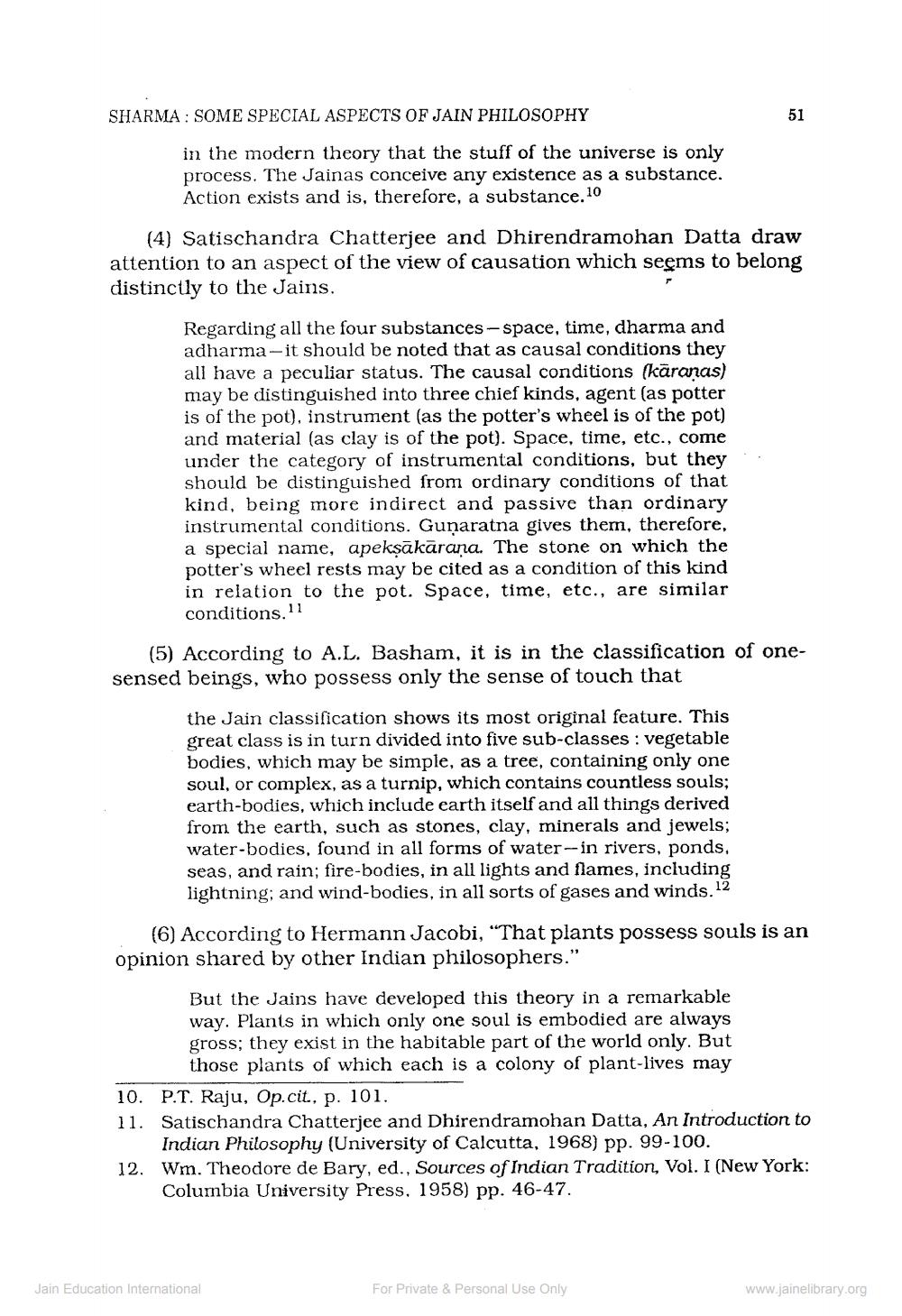Book Title: Jain Journal 2000 10 Author(s): Jain Bhawan Publication Publisher: Jain Bhawan Publication View full book textPage 8
________________ SHARMA: SOME SPECIAL ASPECTS OF JAIN PHILOSOPHY in the modern theory that the stuff of the universe is only process. The Jainas conceive any existence as a substance. Action exists and is, therefore, a substance. 10 (4) Satischandra Chatterjee and Dhirendramohan Datta draw attention to an aspect of the view of causation which seems to belong distinctly to the Jains. Regarding all the four substances-space, time, dharma and adharma-it should be noted that as causal conditions they all have a peculiar status. The causal conditions (karanas) may be distinguished into three chief kinds, agent (as potter is of the pot), instrument (as the potter's wheel is of the pot) and material (as clay is of the pot). Space, time, etc., come under the category of instrumental conditions, but they should be distinguished from ordinary conditions of that kind, being more indirect and passive than ordinary instrumental conditions. Gunaratna gives them, therefore, a special name, apekṣākārana. The stone on which the potter's wheel rests may be cited as a condition of this kind in relation to the pot. Space, time, etc., are similar conditions. 11 (5) According to A.L. Basham, it is in the classification of onesensed beings, who possess only the sense of touch that the Jain classification shows its most original feature. This great class is in turn divided into five sub-classes : vegetable bodies, which may be simple, as a tree, containing only one soul, or complex, as a turnip, which contains countless souls; earth-bodies, which include earth itself and all things derived from the earth, such as stones, clay, minerals and jewels; water-bodies, found in all forms of water-in rivers, ponds, seas, and rain; fire-bodies, in all lights and flames, including lightning; and wind-bodies, in all sorts of gases and winds.12 (6) According to Hermann Jacobi, "That plants possess souls is an opinion shared by other Indian philosophers." But the Jains have developed this theory in a remarkable way. Plants in which only one soul is embodied are always gross; they exist in the habitable part of the world only. But those plants of which each is a colony of plant-lives may 10. P.T. Raju, Op.cit., p. 101. 11. Satischandra Chatterjee and Dhirendramohan Datta, An Introduction to Indian Philosophy (University of Calcutta, 1968) pp. 99-100. 12. Wm. Theodore de Bary, ed., Sources of Indian Tradition, Vol. I (New York: Columbia University Press, 1958) pp. 46-47. Jain Education International For Private & Personal Use Only www.jainelibrary.orgPage Navigation
1 ... 6 7 8 9 10 11 12 13 14 15 16 17 18 19 20 21 22 23 24 25 26 27 28 29 30 31 32 33 34 35 36 37 38 39 40 41 42 43 44 45 46 47 48 49 50 51 52 53 54 55 56 57 58 59 60 61 62 63 64 65 66 67 68 69 70
